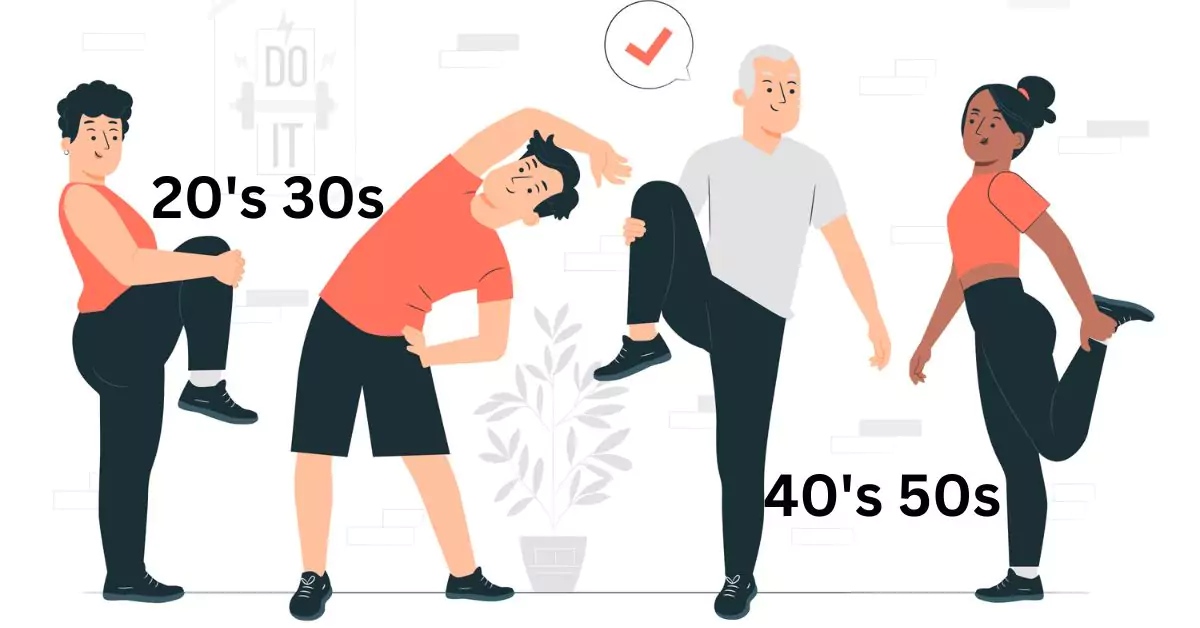This Is Exactly How Much Exercise You Need Per Week—Exercise Recommendations by Gender and Age
Did you know that regular exercise can add years to your life and life to your years? The right amount of weekly exercise is not just a number—it’s a gateway to a healthier, happier you. In this article, we’ll dive into the recommended exercise guidelines and uncover why making time for fitness is crucial for your overall well-being.
Understanding Weekly Exercise Guidelines
The World Health Organization and the American Heart Association have outlined clear exercise guidelines for adults. They recommend at least 150 minutes of moderate-intensity aerobic activity or 75 minutes of vigorous aerobic activity per week, combined with muscle-strengthening activities on two or more days a week. This could include brisk walking, swimming, dancing, or cycling for aerobic activity, and weight lifting or yoga for muscle strengthening.
Exercise Recommendations by Gender and Age
- For Women:
- In their 20s and 30s: Focus on cardio (like running, and swimming), strength training (like weight lifting), and flexibility exercises (like yoga).
- In their 40s and 50s: Incorporate low-impact cardio (like brisk walking, and cycling), resistance training (to combat muscle loss), and bone-strengthening activities (like hiking).
- Post-menopause: Prioritize exercises for balance and bone strength (like tai chi, and pilates), along with moderate cardio and strength training.
- For Men:
- In their 20s and 30s: Emphasize muscle-building activities (like weight training), high-intensity interval training (HIIT), and endurance sports (like cycling, and running).
- In their 40s and 50s: Shift towards a mix of cardio, strength training (to maintain muscle mass), and flexibility exercises (to enhance mobility).
- In their 60s and beyond: Focus on low-impact aerobic activities (like walking, and swimming), strength exercises using lighter weights, and balance exercises (like tai chi).
Exploring the Multifaceted Benefits of Regular Exercise
Engaging in regular exercise is like investing in a health insurance policy with immediate and long-term benefits. Here are some of the key rewards:
- Improved Physical Health: Reduces the risk of chronic diseases such as heart disease, diabetes, and certain cancers.
- Mental Clarity and Emotional Wellness: Enhances mood, reduces anxiety and depression, and improves sleep quality.
- Boosted Energy and Stamina: Increases overall energy levels, improving productivity and daily performance.
Breaking Down Barriers to Regular Exercise
One of the biggest challenges to regular exercise is finding time in our busy schedules. However, integrating fitness into daily life can be easier than you think. Start small with activities like taking the stairs instead of the elevator, or try short, high-intensity workouts that can be more time-efficient. Remember, some exercise is always better than none.
Personalizing Your Exercise Plan for Maximum Benefits
Every individual is unique, and so are their exercise needs. Tailoring your exercise plan to fit your personal health status, preferences, and goals is crucial. Whether you’re a beginner, a senior, or someone with specific health conditions, there’s always a way to safely incorporate physical activity into your routine. Consult with a healthcare provider or a fitness expert to create a plan that works best for you.
Why Consistent Exercise is a Lifelong Commitment
Adopting a regular exercise routine is not just about short-term goals like weight loss or building muscles; it’s about committing to a healthier lifestyle for the long haul. Studies have consistently shown that regular physical activity can significantly reduce the risk of mortality and increase longevity.
Conclusion:
In conclusion, the journey to a healthier life begins with understanding and adhering to the recommended exercise guidelines. The benefits of regular physical activity are immense, touching every aspect of our physical and mental health. So, take that first step today—whether it’s a short walk, a dance class, or a few stretches at home. Your future self will thank you for it.
Featured Image: Freepik

